QuestionHello. I have a 3 year old stafordshire terrier and we just got her spayed 2 weeks ago. When we brought her home she seemed to be ok but then we boticed she was bleeding quite a bit so we immediatley brought her back in to see the vet. The did some test to make sure she was bleeding internally and gave her more blood. Then we brought her home the and the she started "knuckling" ( meaning her 2 front paws would not lay flat when she walked and curled in). 2 weeks later it is still like this. The vet says he has never seen this before in any case after being spayed and seems to think she will progress back to better. He says that it is possible this happened because her platelets and potassium levels got very low?? We are besides ourselves with this and are praying she will make a full recovery. My question to you is have you ever come across a situation like this and if so what can we do to help her along and what do you think may have caused it. Thank you soo much for taking time to read this and I look forward to hearing from you.
AnswerHi Kristy,
I've haven't heard of the problem you've described in relation to spay surgery. It's possible your dog's "knuckling" problem is a neurological reaction due to the anesthesia. There is always risk of an adverse reaction when any anesthetic is used, no matter whether it is for a minor, short-term sedation or for a complete general anesthesia lasting several hours.
Whatever the cause, talk to your vet about using a brace to keep your dog's feet in the correct position, and to avoid injury to the top of the feet. Your vet can probably get the correct type of brace your dog would need, but they're also available online:
http://www.orthopets.com/gallery5.htm
The knuckle walking might only be a temporary, as the brain makes new pathways of how the feet should be positioned, but it might takes months before your dog is walking like normal. You may want to consult with a veterinary neurologist. Your vet should be able to give you a referral, (be sure the neurologist is "board certified") or you can locate one here:
http://www.cavalierhealth.org/neurologists.htm#Click_on_a_state
You might also want to consider accupunture. You can locate a veterinary acupuncturist here:
http://www.aava.org/php/aava_blog/aava-directory/
http://www.ivas.org/Default.aspx?TabId=124
Seeing a veterinary physical therapist might also be a big help. Your vet should know of rehabilitation services in your area.
I hope I've been a help.
Best of luck,
Patti

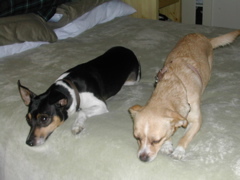 Vicious fighting between two females
Question
Alice and Julia
I have two female rescue dogs
Vicious fighting between two females
Question
Alice and Julia
I have two female rescue dogs
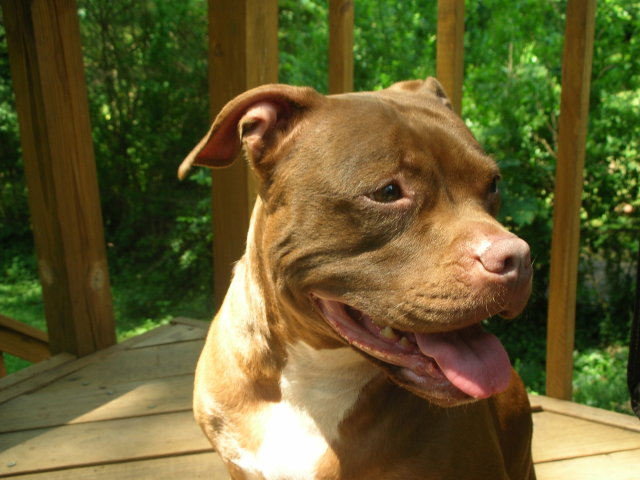 Coping with Incontinence
Question
Abi
Abi, my 8 year old female spayed pit bull,
Coping with Incontinence
Question
Abi
Abi, my 8 year old female spayed pit bull,
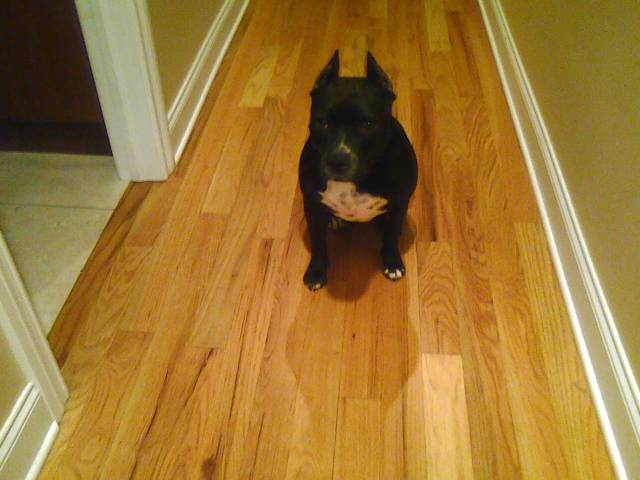 AmStaff Terrier
QuestionMy dog
QUESTION: I have a 2 1/2 year old
AmStaff Terrier
QuestionMy dog
QUESTION: I have a 2 1/2 year old
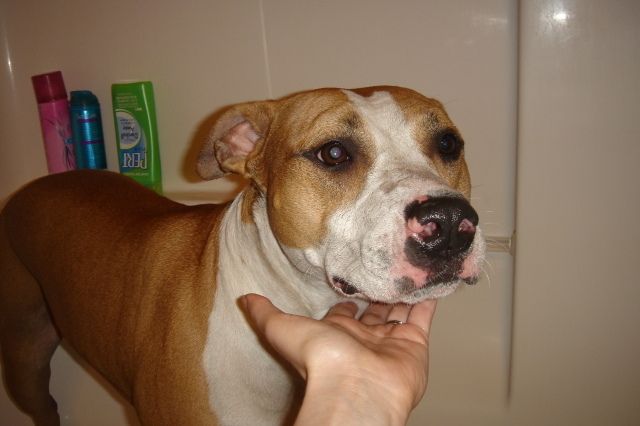 Dog breed?
QuestionQUESTION: Hi Nancy,
I am attaching an image of
Dog breed?
QuestionQUESTION: Hi Nancy,
I am attaching an image of
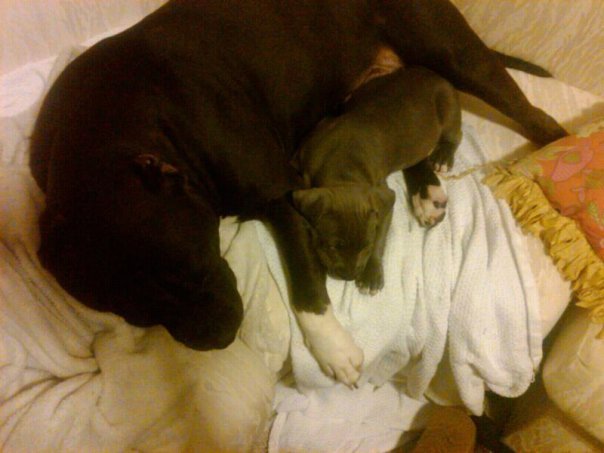 Dog aggression towards puppy
Question
The father and his pup
My older dog is an Amer
Dog aggression towards puppy
Question
The father and his pup
My older dog is an Amer